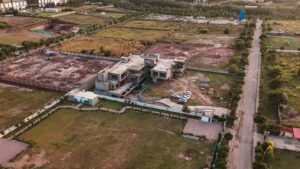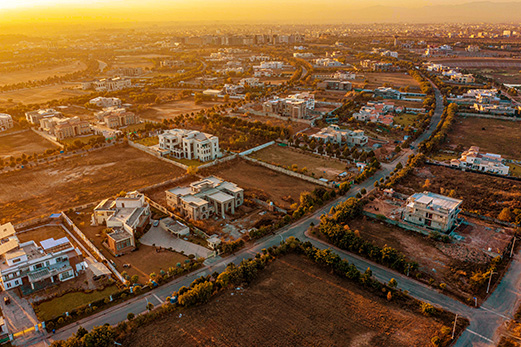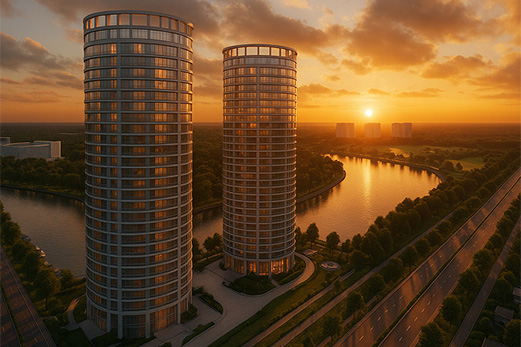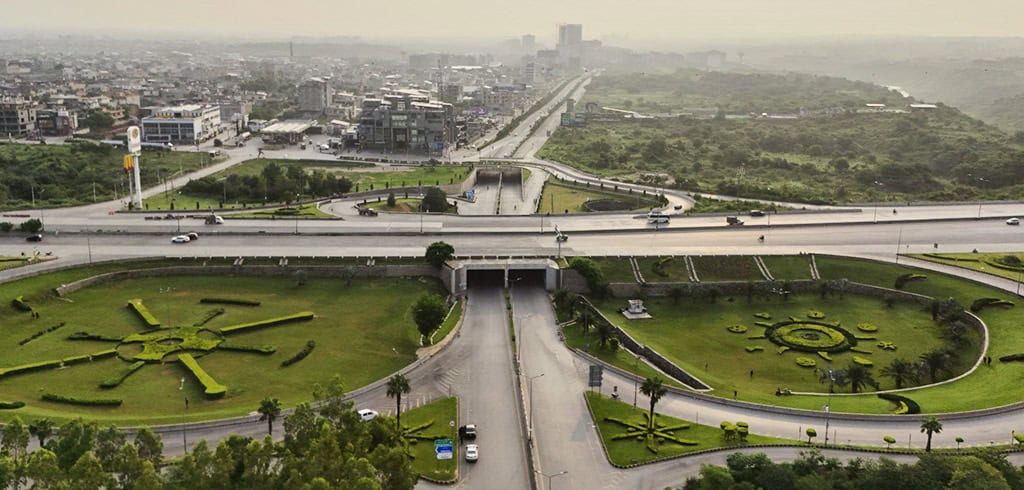The real estate business is one of the major factors driving Pakistan’s economy. It contributes significantly to our GDP, employment, and wealth generation. The Pakistan real estate market has enormous potential, especially with its rising population and urbanisation. Nevertheless, despite having immense opportunities, the industry faces several challenges in 2025. Here, we will address the key challenges affecting the Pakistan real estate market and explore how they can influence the future of investment in Pakistan.
Economic Factors Impacting the Real Estate Industry

The changing economy is one of the significant problems in Pakistan’s real estate market. Property prices are constantly under the influence of inflation and currency depreciation. With the cost-of-living escalation, buyers and sellers experience higher costs, thus hindering investment opportunities. The interest rates have also been very high, making it hard to get affordable financing. This has caused a slowdown in real estate investment in Pakistan, with local and foreign investors being more careful.
In addition, investment fluctuations are noticeable since economic instabilities scare potential investors away. Poor market confidence will translate to fewer transactions
Regulatory and Legal Challenges
Another major obstacle in Pakistan’s real estate market is the complicated regulatory setting. Many property transactions have challenges of vague ownership and ineffective records. Such complicated property laws tend to cause conflicts over land titles. Such cities include Islamabad, Karachi, and Lahore.
Moreover, the land ownership question is not solved yet, as unlawful land purchases and fraudulent transactions are regularly conducted. Irregular government policies compound such issues. These include alteration of property taxes and regulations, which, in most cases, confuse buyers, sellers, and developers. These hurdles make the real estate business in Pakistan even more accessible and risky to new investors.
Infrastructure and Urbanisation Problems
Urbanisation is increasing rapidly, yet infrastructure development is not keeping up with the pace. The rapid growth of urban areas is a significant problem, as developers build new residential developments without infrastructure such as roads, sewerage, and utilities. This creates traffic jams and inaccessibility, especially in densely populated areas.
Moreover, water and electricity shortages continue to be experienced in various areas. As real estate developers consider expansion, these infrastructure gaps create delays, cost escalation, and unsatisfied purchasers. Thus, it is imperative to mitigate these issues of urbanisation to determine the future of real estate investment in Pakistan.
Corruption and Lack of Transparency

Pakistan’s real estate market is afflicted by corruption and a lack of transparency. Due to weak enforcement of construction laws, unregulated buildings and illegal housing schemes are widespread. Another major problem is land grabbing, where some developers and other influential people illegally grab land to make money.
Additionally, fund transactions, market manipulation, and a lack of reliability are regular issues. The fact that many buyers and sellers will have to use real estate agents help to navigate these issues raises a question of trust. The absence of market transparency will not stimulate investment and growth.
Demand and Supply Imbalance
The other risk to the real estate business in Pakistan is the supply imbalance. People demand affordable housing, but developers are more interested in constructing luxury homes or business spaces. This trend has led to middle- and low-income segments fighting for affordable housing.
Additionally, ideas about property in real estate have driven property prices up; thus, even more ordinary Pakistanis will no longer be in a position to afford good houses. Housing, including Islamabad plots for sale, is continuously becoming expensive; thus, individuals are unable to find plots that suit their budgets.
Conclusion
Economic uncertainty, complex regulations, infrastructure failures, and corruption are some threats that Pakistan’s real estate market is likely to face in 2025. Nevertheless, solutions to these problems can open the gateway to much growth. Contractors, property agents, and government entities must work to have a more transparent, sustainable, and efficient market. Pakistan’s real estate market can succeed at this stage and offer additional opportunities for investment and property acquisition. It can be residential or commercial property in Pakistan, but market dynamics will always be a key component of a wise investment.
Read More
- Pakistan Budget 2025: New Taxes, Policy Rollbacks & Relief Measures Explained
- Pakistan Emerges as a Global Leader in Financial Stability — Bloomberg’s 2025 Rankings Reveal
- Exploring Gulberg’s Waterfront: The Largest Man-Made Lake in Islamabad
- PLRA Property Transfer Services Now Available for Overseas Pakistanis in London











